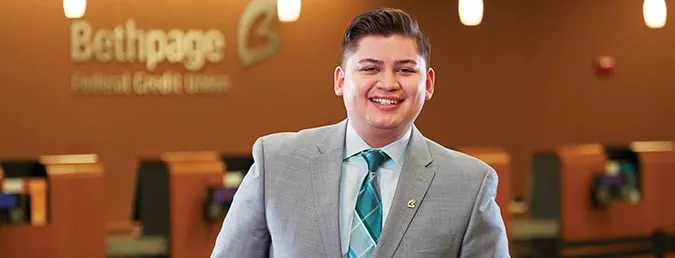
How many times have you looked at your bank statement and said, “I have no idea where all my money went.” It’s easy to lose track of what you’re spending when you’re out with friends, buying concert tickets or if you want to buy the latest new phone. Impulsive purchases can add up quickly if you’re not careful about your spending. At any age, it’s good to start thinking about your spending habits and what you can add to your savings.
What’s the best way to save money? Follow these three simple tips today:
1. Start now.
There’s no better time than now to start saving and planning for your financial future. Yes, this includes eliminating impulsive and unnecessary expenses (those daily macchiatos will add up!).
Cut out non-essential purchases, and keep track of any money you do spend. Setting up automatic transfers to your savings account with every paycheck will also help reduce the risk of overspending.
Use the 50-30-20 rule:
- 50% for must-have expenses like housing and food
- 30% for things you might want like internet service, clothes or other luxuries
- 20% to stash into your savings
Even one dollar a day will help you accumulate an emergency expenses fund for when you really need it.
2. Live within your means.
Simply put, don’t spend more than you can afford. Create a budget that lists your expenses, including rent or mortgage, car payments, student loans, bills and food – plus fun money for video subscriptions, trips, festivals and going out. Check out this blog from Refinery29 for a list of mapped-out expenses, along with an example of a seven-day budget for a trip to Austin, Texas.
Once you start tracking your expenses, you’ll find it’s easier to prioritize savings and develop a smarter plan for financial growth. This will help you make wiser spending choices, cut impulsive purchases and plan better for the future.
3. Think long-term.
Let’s face it, we all enjoy the instant satisfaction of having the latest headphones or a new bike to get around town. You should start asking yourself: where is that money coming from? And, how will it impact future savings? In most cases, large, unplanned purchases lead to high credit card balances, paving the road to long-term debt.
Think ahead, and set money aside every month for an emergency savings fund. That way, you can access money when you need it, like for an unexpected car or home appliance repair. Another long-term solution to consider is investing in a retirement savings plan, which compounds interest and builds wealth over time, so you always have a back-up plan.
Saving is Easy with Bethpage
Saving for a rainy day doesn’t have to be hard. At Bethpage, you’ll find saving is simple, and you can start with as little as $5.
Start saving more today by opening a Bethpage Free Checking account.
- Categories:


